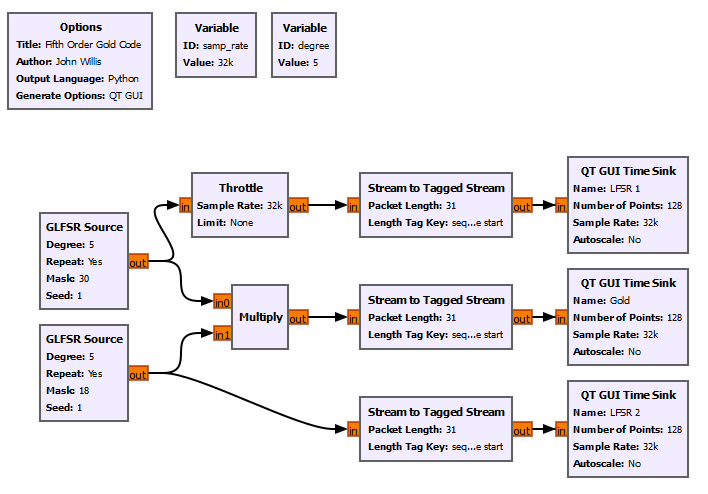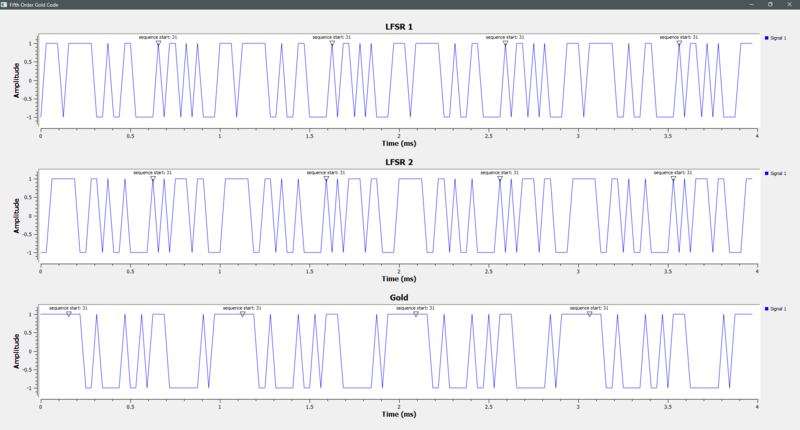GLFSR Source
Jump to navigation
Jump to search
Galois LFSR pseudo-random source generating float outputs -1.0 - 1.0. Generates a maximal length sequence of length 2^degree-1.
Parameters
- Degree
- Degree of shift register must be in [1, 32]. If mask is 0, the degree determines a default mask (see digital_impl_glfsr.cc for the mapping).
- Repeat
- Set to repeat sequence.
- Mask
- Allows a user-defined bit mask for indexes of the shift register to feed back. For example the two fifth-order primitive polynomials, p(x) = x^5 + x^4 + x^3 + x^2 + 1 and p(x) = x^5 + x^2 + 1, will create m-sequences of length 2^n-1 where n is the degree. The mask is in byte format specifying the taps. The "one" in the polynomial does not correspond to a tap – it corresponds to the input to the first bit and is excluded from the mask. So the polynomials would be entered into the mask as 0x1E and 0x12 respectively. Note that these are integers, so after they are enter in the GNURadio block they will show as decimal 30 and 18, respectively.
- Seed
- Initial setting for values in shift register.
Example Flowgraph
Example of the two polynomials, p(x) = x^5 + x^4 + x^3 + x^2 + 1 and p(x) = x^5 + x^2 + 1, to create a Gold Code Sequence.
Source Files
- C++ files
- Header files
- glfsr_source_b_impl.h
- Public header files
- glfsr.h
- Block definition
- digital_glfsr_source_x.block.yml


